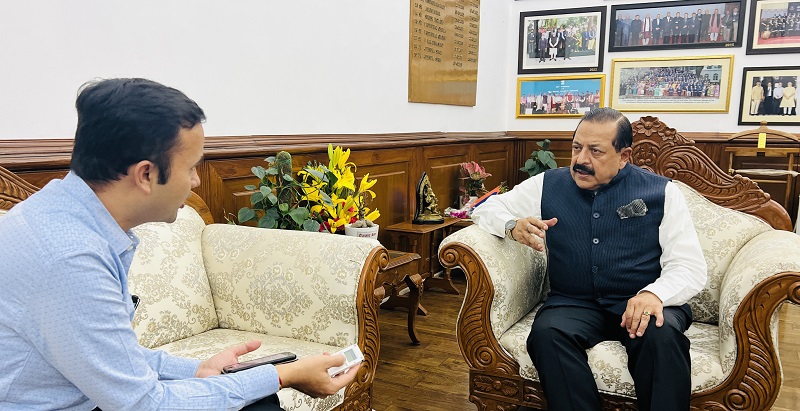Dr. Jitendra announces staggering revenue as India reaps rewards of cleanliness drive, a boost for environmental sustainability.
In a groundbreaking revelation, Dr. Jitendra Singh, Minister of State in the Prime Minister's Office, disclosed that a remarkable Rs 1,162 crores have been earned through the disposal of scrap during the 'Swachhata' campaign. This revelation highlights the multifaceted success of India's nationwide cleanliness initiative, translating not only into a cleaner environment but also into a substantial economic gain.
The 'Swachhata' campaign, launched with fervor to address sanitation issues across the country, has surpassed expectations by not only transforming landscapes but also turning waste into wealth. Dr. Jitendra Singh, the driving force behind the campaign, expressed his elation at the financial milestone achieved through the systematic disposal of scrap material.
The meticulous planning and execution of waste management strategies under the 'Swachhata' initiative have not only contributed to a cleaner India but have also emerged as an unexpected source of revenue. The revenue generated, amounting to Rs 1,162 crores, speaks volumes about the success of the campaign in not only creating awareness about cleanliness but also in promoting sustainable practices.
The funds generated from the scrap disposal are expected to be reinvested in further environmental initiatives, thereby creating a cyclical and self-sustaining model. Dr. Jitendra Singh emphasized the importance of channeling these funds back into environmental projects, ensuring a continuous positive impact on the nation's ecological landscape.
This financial success is a testament to the collaborative efforts of citizens, local authorities, and the government in realizing the vision of a cleaner and greener India. The scrap disposal not only contributes to the economy but also addresses the environmental hazards associated with improper waste management.
The 'Swachhata' campaign, which initially focused on improving sanitation and hygiene, has evolved into a holistic approach toward environmental sustainability. The unexpected financial windfall from scrap disposal adds a new dimension to the campaign's success, proving that a cleaner environment can lead to economic prosperity.
As citizens actively participated in the cleanliness drive, segregating and disposing of waste responsibly, the positive impact reverberated across communities. The revenue generated is a reflection of the collective commitment of the Indian populace to embrace and implement sustainable practices.
In conclusion, the revelation of earning Rs 1,162 crores from scrap disposal during the 'Swachhata' campaign underscores the transformative power of collective action. Beyond the visible cleanliness, the economic benefits highlight the campaign's success in aligning environmental conservation with financial gains. As India continues on this path, it not only paves the way for a cleaner future but also sets a precedent for global sustainability efforts. The 'Swachhata' campaign stands not just as a national movement but as a beacon of inspiration for nations striving to balance environmental consciousness with economic growth.
